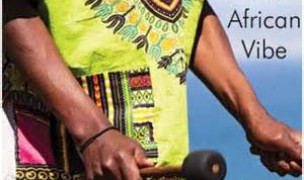 9 Terms
9 TermsHome > Terms > English (EN) > Battle of Thermopylae 480BC
Battle of Thermopylae 480BC
The Battle of Thermopylae was a battle of the Second Persian Invasion of Greece between an alliance of Greek city-states, led by King Leonidas of Sparta, and the Persian Empire of Xerxes I over the course of three days. It took place simultaneously with the naval battle at Artemisium, in August or September 480 BC, at the narrow coastal pass of Thermopylae ('The Hot Gates'). The Persian invasion was a delayed response to the defeat of the first Persian invasion of Greece, which had been ended by the Athenian victory at the Battle of Marathon in 490 BC. Xerxes had amassed a huge army and navy, and set out to conquer all of Greece. The Athenian general Themistocles had proposed that the allied Greeks block the advance of the Persian army at the pass of Thermopylae, and simultaneously block the Persian navy at the Straits of Artemisium.
A Greek force of approximately 7,000 men marched north to block the pass in the summer of 480 BC. The Persian army consisted of 100,000 to 300,000 soldiers.
The vastly outnumbered Greeks held off the Persians for seven days (including three of battle) before the rear-guard was annihilated in one of history's most famous last stands. During two full days of battle the small force led by King Leonidas I of Sparta blocked the only road by which the massive Persian army could pass. After the second day of battle a local resident named Ephialtes betrayed the Greeks by revealing a small path that led behind the Greek lines.
First Day of Battle:
Xerxes ordered five thousand archers to fire a barrage of arrows at the Greeks, but the bronze shields and helmets deflected the missiles, leaving no permanent damagefter that, Xerxes sent a force of ten thousand Medes and Cissians against the Greeks, to take them prisoner and bring them before him. The Persians soon found themselves launching a frontal assault, in waves of around 10,000 men, on the Greek position. The Greeks fought in front of the Phocian wall, at the narrowest part of the pass, in a strategic attempt to use as few soldiers at once as possible.The Greeks killed so many Medes that Xerxes is said to have stood up three times off the seat from which he was watching the battle. According to Ctesias, the first wave was "cut to ribbons" with only two or three Spartans dead.According to Herodotus and Diodorus, the king, having taken the measure of the enemy, threw his best troops into a second assault the same day, the Immortals, an elite corps of 10,000 men. However, the Immortals fared no better than the Medes had, failing to make headway against the Greeks. The Spartans apparently used a tactic of feigning retreat, and then turning and killing the enemy troops when they ran after the Spartans.
The second day of battle
Xerxes again sent in the infantry to attack the pass, "supposing that their enemies, being so few, were now disabled by wounds and could no longer resist."
However, the Persians fared no better on the second day than on the first. Xerxes at last stopped the assault and withdrew to his camp, "totally perplexed".
At daybreak on the third day, the Phocians guarding the path above Thermopylae became aware of the outflanking Persian column by the rustling of oak leaves. Herodotus says that they jumped up and were greatly amazed. Hydarnes was perhaps just as amazed to see them hastily arming themselves as they were to see him and the Persian forces.
Learning from a runner that the Phocians had not held the path, Leonidas called a council of war at dawn. Some of the Greeks argued for withdrawal, but Leonidas resolved to stay at the pass with the Spartans. Many of the Greek contingents then either chose to withdraw (without orders), or were ordered to leave by Leonidas (Herodotus admits that there is some doubt about which actually happened). The contingent of 700 Thespians, led by their general Demophilus, refused to leave with the other Greeks but committed themselves to the fight.
By covering the retreat, and continuing to block the pass, Leonidas could save more than 3,000 men, who would be able to fight at some later point.
- Part of Speech: proper noun
- Synonym(s):
- Blossary:
- Industry/Domain: History
- Category: Ancient Greece; Ancient history
- Company:
- Product:
- Acronym-Abbreviation:
Other Languages:
Member comments
Terms in the News
Billy Morgan
Sports; Snowboarding
The British snowboarder Billy Morgan has landed the sport’s first ever 1800 quadruple cork. The rider, who represented Great Britain in the 2014 Winter Olympics in Sochi, was in Livigno, Italy, when he achieved the man-oeuvre. It involves flipping four times, while body also spins with five complete rotations on a sideways or downward-facing axis. The trick ...
Marzieh Afkham
Broadcasting & receiving; News
Marzieh Afkham, who is the country’s first foreign ministry spokeswoman, will head a mission in east Asia, the state news agency reported. It is not clear to which country she will be posted as her appointment has yet to be announced officially. Afkham will only be the second female ambassador Iran has had. Under the last shah’s rule, Mehrangiz Dolatshahi, a ...
Weekly Packet
Language; Online services; Slang; Internet
Weekly Packet or "Paquete Semanal" as it is known in Cuba is a term used by Cubans to describe the information that is gathered from the internet outside of Cuba and saved onto hard drives to be transported into Cuba itself. Weekly Packets are then sold to Cuban's without internet access, allowing them to obtain information just days - and sometimes hours - after it ...
Asian Infrastructure Investment Bank (AIIB)
Banking; Investment banking
The Asian Infrastructure Investment Bank (AIIB) is an international financial institution established to address the need in Asia for infrastructure development. According to the Asian Development Bank, Asia needs $800 billion each year for roads, ports, power plants or other infrastructure projects before 2020. Originally proposed by China in 2013, a signing ...
Spartan
Online services; Internet
Spartan is the codename given to the new Microsoft Windows 10 browser that will replace Microsoft Windows Internet Explorer. The new browser will be built from the ground up and disregard any code from the IE platform. It has a new rendering engine that is built to be compatible with how the web is written today. The name Spartan is named after the ...
Featured Terms
phylum placozoa
Macroscopic, flattened marine animals, composed of ventral and dorsal epithelial layers enclosing ...
phylum cnidaria
Cnidarians. Hydras, hydroids, jellyfish, sea anemones, and corals. Free-swimming or sessile, with ...
share a term with millions
Share a term with millions of users around the world and increase your online visibility.Share a ...
oak
Genus native to the Northern Hemisphere with spirally arranged leaves, catkins for flowers and ...
Everest
The last but not least mount Everest. The Earth's highest mountain, with a peak at 8,848 metres ...
aglaonema
Genus of about 20 species of usually rhizomatous, evergreen perennials from tropical forest in Asia. ...
Robojelly
Robojelly is a hydrogen-powered robot desgined in the United States that moves through the water ...
Ferdinand Porsche
Ferdinand Porsche (3 September 1875 – 30 January 1951) was an Austrian-German automotive engineer ...
Marzieh Afkham
Marzieh Afkham, who is the country’s first foreign ministry spokeswoman, will head a mission in east ...
define1
Share a term with millions of users around the world and increase your online visibility.Share a ...
Contributor
Featured blossaries
Geronimo
0
Terms
1
Blossaries
0
Followers
Scariest Halloween-themed Events
 9 Terms
9 TermsBrowers Terms By Category
- Inorganic pigments(45)
- Inorganic salts(2)
- Phosphates(1)
- Oxides(1)
- Inorganic acids(1)
Inorganic chemicals(50) Terms
- Marketing communications(549)
- Online advertising(216)
- Billboard advertising(152)
- Television advertising(72)
- Radio advertising(57)
- New media advertising(40)
Advertising(1107) Terms
- Project management(431)
- Mergers & acquisitions(316)
- Human resources(287)
- Relocation(217)
- Marketing(207)
- Event planning(177)
Business services(2022) Terms
- Lingerie(48)
- Underwear(32)
- Skirts & dresses(30)
- Coats & jackets(25)
- Trousers & shorts(22)
- Shirts(17)
Apparel(222) Terms
- Festivals(20)
- Religious holidays(17)
- National holidays(9)
- Observances(6)
- Unofficial holidays(6)
- International holidays(5)






